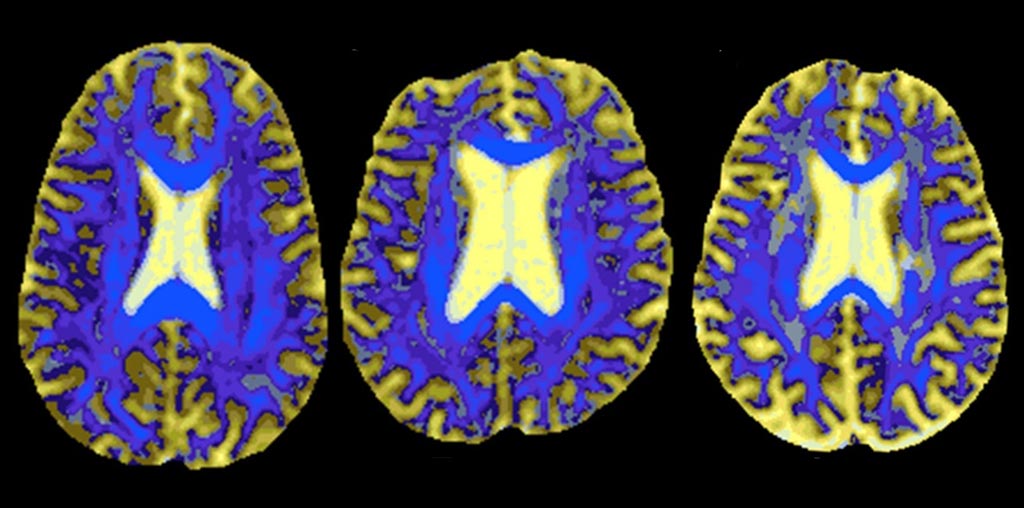Diffusion-Based MRI May Predict Dementia Advent
By MedImaging International staff writers
Posted on 24 Oct 2019
An automatic diffusion tensor image segmentation (DSEG) technique could help assess brain microstructural damage in cerebral small vessel disease (SVD) patients, claims a new study.Posted on 24 Oct 2019
Researchers at St George's University of London (SGUL; United Kingdom), Goldsmiths University of London (United Kingdom), and other institutions conducted a study involving 96 SVD patients (aged 43–89 years) in order to explore the extent to which DSEG, which characterizes microstructural damage using just a single diffusion tensor image (DTI) acquisition at 1.5T, can predict both degree of cognitive decline and conversion to dementia. All patients underwent annual MRI scanning for a period of three years and cognitive assessment for a five-year period. DSEG was used to map the cerebrum into 16 segments.

Image: DSEG images of the reference brain (L), a stable SVD patient (C), and a patient who developed dementia (R) (Photo courtesy of Rebecca Charlton/ Goldsmith University of London).
By comparing segments of an individual with SVD to those of a healthy brain, the researchers derived a DSEG spectrum containing information about grey matter, white matter, cerebrospinal fluid (CSF), and regions with diffusion profiles that deviate from those of healthy tissue. They found that DSEG measures increased over time, indicating progression of SVD burden, and that the DSEG measures also predicted decline in executive function and global cognition, as well as identifying stable individuals versus those who developed dementia.
In all, the results revealed that DSEG was significantly related to decline in executive function and global cognition, with 18.2% of the patients converted to dementia. Baseline DSEG predicted dementia with a balanced classification rate of 76%. No relationship was found between DSEG measures and information processing speed; the researchers suggest that perhaps this is because DSEG covers the entire cerebrum and not just white matter tracts, within which information processing and SVD are strongly associated. The study was published on September 12, 2019, in Stroke.
“Our objective was to find a measure of brain tissue microstructural damage. Using a new technique based on readily available MRI scans, we can predict which people go on to show cognitive decline and develop dementia,” said senior author Rebecca Charlton of Goldsmiths University of London. “In the future, DSEG technology could be used as a decision support system for clinicians. This technique has the potential to identify those patients at risk for cognitive decline and vascular dementia.”
Water molecules undergo random Brownian motion, also known as diffusion. MRI is sensitive to this motion, as controlled by the b-value. When the b-value equals zero, the images are not weighted by diffusion; when the b-value is greater than zero the images are diffusion-weighted. When cellular membranes, the myelin shield, etc., hinder the diffusion, the signal is higher. DTI can thus be used to visualize fiber structures, as it can readily differentiate water molecule diffusivities both along and against the fiber.
Related Links:
St George's University of London
Goldsmiths University of London














